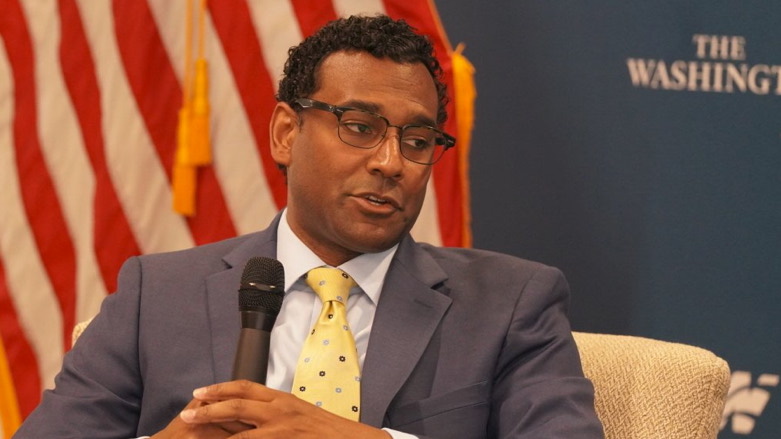Over 3,000 individuals have been repatriated from northeast Syria: US official

ERBIL (Kurdistan 24) – Ian Moss, the US Deputy Coordinator for Countering Violent Extremism and Terrorist Detentions at the State Department’s Bureau of Counterterrorism, at an event hosted by the Washington Institute on Thursday, said so far 3,000 individuals have been repatriated from northeast Syria.
The challenges presented by the populations in detention in al-Hawl and al-Roj camps in NE Syria require the urgent action and support of the international community, @StateDeptCT's Ian Moss told @Levitt_Matt at a #TWIPolicyForum.
— Washington Institute (@WashInstitute) April 19, 2023
📺Watch the full event: https://t.co/HGCQvBoytX pic.twitter.com/M8HIPZVJI2
“The complex set of challenges presented by the populations in detention and in al-Hawl and al-Roj camps in northeast Syria require the urgent action and support of the international community. This includes stabilization assistance for northeast Syria, support for communities of return in Iraq and northeast Syria, and programmatic support for disengagement, rehabilitation, and reintegration, and more importantly, repatriation,” he said.
“On repatriation, we have engaged intensively on the diplomatic front and as a result have seen significant progress over the past year. Over 3,000 individuals have been repatriated—more than the prior two years combined—to a number of different countries, including Albania, Barbados, Canada, France, Iraq, Kosovo, Kyrgyzstan, the Netherlands, Norway, Sudan, Spain, and Slovakia,” he added.
Moreover, he said that the US anticipates that this year at least 25 countries from different regions of the world will conduct at least one repatriation operation. “Already in 2023, ten countries have repatriated more than 1,300 of their nationals,” he added.
Furthermore, he noted that both Kosovo and Iraq repatriated hundreds of fighters in 2022. “While repatriation of women and children is important and urgent, the hard truth is that countries must also repatriate men and youths in detention and rehabilitation centers,” he added.
“Repatriating these individuals ultimately poses a much lower risk than leaving them in northeast Syria,” he underlined.
“Ten thousand ISIS fighters remain in custody there, which is the largest concentration of detained terrorists anywhere in the world. ISIS continues to look for new opportunities to replenish its ranks by trying to free these detained fighters. If they escape, they will pose a threat not only to northeast Syria and the region, but to our homelands.”
He also underlined that the key challenge to repatriations from northeast Syria—it is not technical, it is political.
“We hear time and time again leaders say their domestic publics are opposed to repatriation. They argue that the fighters, if they are successfully prosecuted, could risk radicalizing prison populations.”
“They also express concern that returnees who are unable to be prosecuted could plan future terrorist attacks or promote violence. They also fail to see fully the humanity in the innocent children who comprise more than half of the total population in the camps, and assert that these kids will pose a security risk to communities if and when they are returned.”
“This is a collective action problem. If we work together, we can reduce the risk we all face. We have the tools to do this. We can not only mitigate the risk each country faces individually in bringing its nationals home, but also reduce the risk of an ISIS resurgence that threatens us all,” he concluded.
